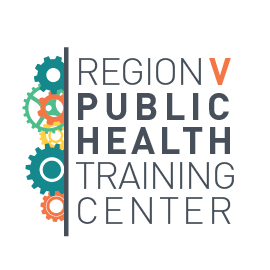By Andrew Wapner, DO, MPH, The Ohio State University College of Public Health
Case competitions are valuable opportunities for students to translate concepts and theories into action directly with community organizations. At the Ohio State University College of Public Health (OSUCPH), case competitions are common in the Master of Health Administration program, in which teams of four or five students compete throughout the academic year both internally and with programs across the country. Master of Public Health (MPH) students in the college, however, do not have a recurring opportunity to participate in these competitions despite many choosing positions within governmental public health or other community health organizations after graduation.
OSUCPH has tried several times to establish case competitions as a regular part of the graduate student experience, organizing four competitions over the past eight years, including cases focusing on opioid overdose prevention, homelessness, infant mortality, and COVID-19 safety for people within the correctional system. Public health students participating in these competitions worked in interdisciplinary teams, within the college, with social work OSU graduate students, and with students from Case Western Reserve University in Cleveland. Cases were developed with local public health, health systems, advocacy, and rights-based organizations.
While each of these four separate instances were successful in engaging both community organizations and students, none led to ongoing competitions with students and programs across Ohio, as was intended with the first one in 2017. With changing college leadership and staff, lack of dedicated funding, and eventually the needs arising during the COVID-19 pandemic, a new program such as a case competition was not sustainable. Given the relatively low number of graduate MPH students going on to work within governmental public health, providing experiences where students can work directly with these organizations to apply their learning to real solutions is one method to strengthen relationships with potential future employers.
At OSUCPH, building these relationships between students and governmental public health is a focus within both our graduate programs and student support infrastructure. Applied practice experiences, integrated learning experiences, career fairs, and guest teaching are all activities students may experience in any given year; however, these opportunities are not available to all students, nor do they often involve team-based work or competency-driven learning.
Having been involved in planning and implementing for two of the four case competitions OSUCPH has hosted, I saw the impact of the experiences the events had on the small groups of students who participated but also knew the college would not be in the position to host another one for some time. Meanwhile, in 2021, while transitioning the college’s MPH Program for Experienced Professionals (PEP) to a fully online, distance learning program, I realized that the case competition format could be an excellent way to have students demonstrate their required competencies, and created a new course designed to replicate the case-based format.
For those who have developed and implemented case competitions, it’s hard to overestimate the amount of work needed to connect with local organizations, develop a case, create a scoring rubric, and manage the logistics of multiple teams, external judges, and other stakeholders. Understanding this myself, I knew I needed to find a community partner willing and able to commit to an ongoing project with considerable needs and the willingness to engage with students in novel ways.
Enter the Academic Health Department (AHD)
OSUCPH and Columbus Public Health have been partnering as an AHD since 2019, focusing on event co-planning, traditional student placements, and training and workshop co-development. For the past five years, our two organizations have developed a strong and reliable relationship, but more than anything, it has provided a space for brainstorming and ongoing discussions to do more. It was this space that led to the original idea to create the case-based course for the MPH-PEP program, and eventually led to the development of both cases used in the first two years of the course.
Students learned directly from Columbus Public Health staff, working with cases focused on a local measles outbreak and lead exposure prevention. Student teams worked for four months, using the public health approach to define the problem and the population at risk, assess the needs and assets of the community, identify and appraise the evidence, and develop recommendations. Teams share their case solutions and receive detailed feedback from Columbus Public Health. Over the two courses, students have consistently reported this direct contact with public health staff and the work solving a real problem was the best, and in many cases first, experience in working with local public health.
The AHD partnership was critical for both the creation of the cases and the success of the course. With more than five years of partnership, communication channels within both organizations have been stronger than ever. Requests for support often get directly to staff, and staff are often excited to teach. Monthly meetings allow for updates, planning, and discussions that keep projects moving and provide opportunities to create. Most importantly, we’ve developed a culture of saying yes—figuring out a way to make things work and finding the people to help.
For OSUCPH and Columbus Public Health, the AHD has been more than just an agreement to work together. It’s elevated the experiences for students, encouraged continued development and progress and it has truly changed the way our two organizations collaborate. Going beyond guest lectures and developing case-based learning opportunities has given our students a true sense of the work local public health does while providing public health practitioners with fresh insight to ideas to bring to the community.

